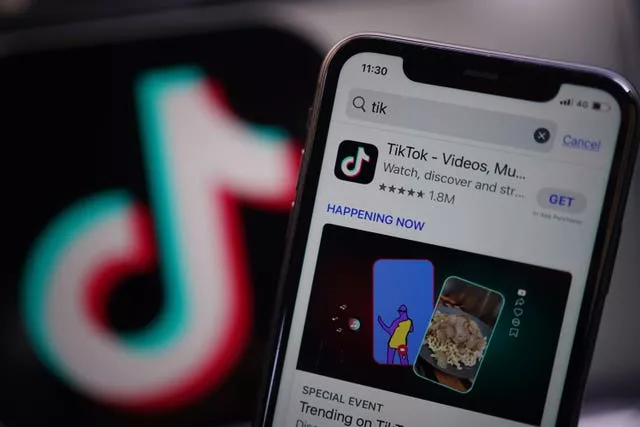A junior minister has said there is “more than one risky app out there”, but said Government advice for official mobile phones does not name specific companies.
Chinese-owned TikTok has come under fire in the US, Europe and Asia, where a growing number of governments have banned the app from devices used for official business over worries it poses risks to cybersecurity and data privacy or could be used to push pro-Beijing narratives and misinformation.
There is no evidence to suggest this has happened or that TikTok has handed user data to the Chinese government, as some of its critics have argued it could do.
Asked about whether he was confident TikTok did not pose a threat to Government data, Minister of State at the Department of Communications Ossian Smyth said the National Cyber Security Centre has issued guidance on the use of third-party apps and mobile devices in the public sector.

The guidance does not name specific companies.
The company is currently subject to two investigations by the Data Protection Commissioner.
Asked about a reluctance to name TikTok specifically, Mr Smyth said the guidance was based on risky behaviour rather than specific vendors.
“It will have to be risk-based, it will have to be evidence-based, it won’t be about naming a particular company or app,” he said.
Mr Smyth said each Government department restricts how work mobile phones are used.
“Some have a very restrictive approach to that,” he said.
Mr Smyth added that he did not have TikTok on his phone.
Speaking at the launch of new guidelines for SMEs around public procurement, Mr Smyth said there will be updated guidance on procurement around sensitive locations like the national Parliament and garda stations.
“It is going to advise on how you can minimise risk in the procurement of devices in sensitive locations,” he said.
The new guidance on public procurement includes an increase to the threshold at which all contracts for goods and services must be advertised on eTenders from €25,000 to €50,000, exclusive of VAT.
The threshold at which all contracts for works must be advertised on eTenders was also increased from €50,000 to €200,000.







